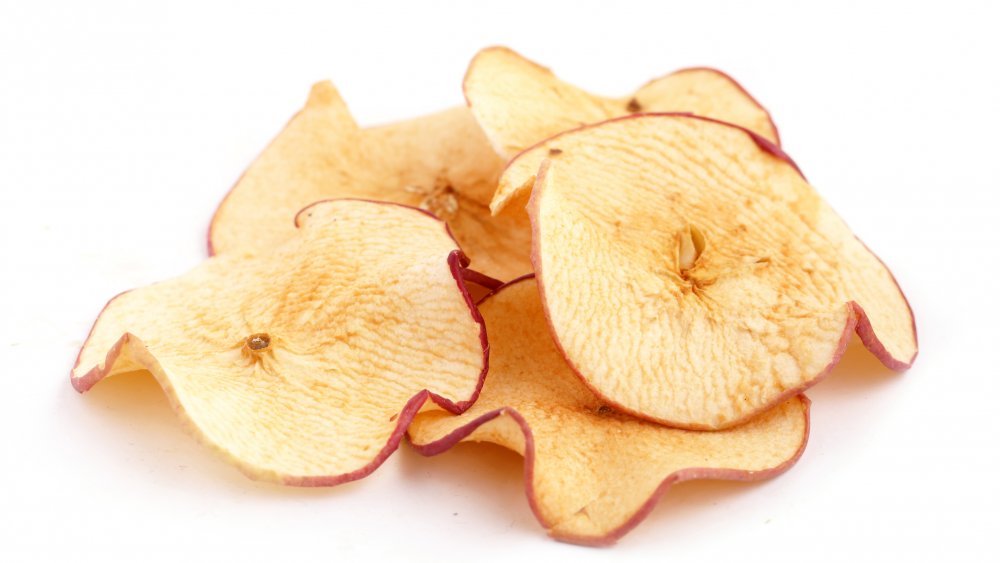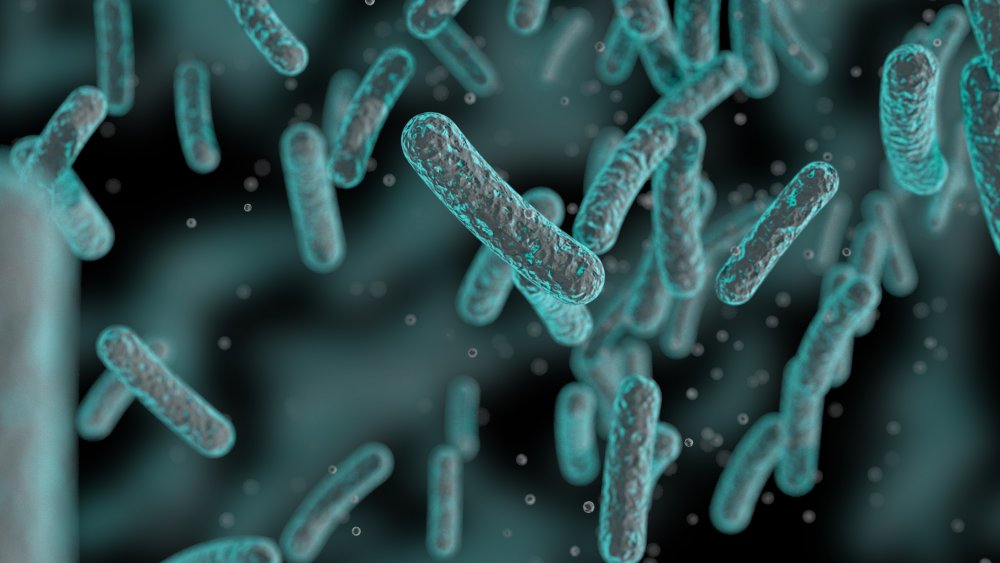The Reason Aldi Just Recalled Its Apple Chips
On October 5th, the US Food and Drug Administration passed on the announcement that Seneca Snack Company had issued a voluntary recall for Seneca Cinnamon Apple Chips and Clancy's Cinnamon Apple Chips due to concerns about a possible Salmonella contamination. The specific recalled products you should avoid if you come across them are Seneca Cinnamon Apple Chips in both 2.5 and 0.7-ounce packages, and Clancy's Cinnamon Apple Chips in the 2.5-ounce package. Anyone who has bought these products should return them to where they bought the snacks for a full refund. The announcement stresses that this is only for the cinnamon-flavored snacks, as the rest are unaffected. The recall is also only for Clancy's products that are sold in Aldi stores and Seneca products sold nationwide through Amazon and Gemline, with the contamination limited to those retailers.
The reason for this highly specific recall is that Seneca Snack Company received a warning from an ingredient supplier that one shipment of ingredients, which included cinnamon, was potentially contaminated with Salmonella. So far, Seneca's unaware of anyone actually becoming sick from these products. This recall is not necessarily cause for alarm, as outbreaks of Salmonella are not particularly unusual. In the FDA's summary of recalls, market withdraws, and safety alerts for 2018, 90 of their notifications that year were due to the potential presence of Salmonella –and this is not even the first Salmonella scare in recent months.
This Aldi Salmonella recall is not the first of 2020
The CDC explains that Salmonella are bacteria that infect an estimated 1.35 million Americans annually, sending 26,500 to hospital and 420 to the grave. In most cases, this actually only causes a mild (if nasty) illness that produces diarrhea, fever, and stomach cramps, but doesn't require antibiotics to recover from. You may, however, be confused about how Salmonella could have infected cinnamon, due to the public conception that the bacteria travels through poorly cooked chicken and eggs. But, as Eater described in August when covering the recent Salmonella-related onion recall, it can be found in almost any source: "There are multiple ways that Salmonella can contaminate produce: humans (for example, harvesters), animals (both domesticated and wildlife), soil (including fertilizers and soil amendments), water (which can be contaminated from animals and then used for irrigation, or get to crops through flooding), and equipment and tools." Basically, Salmonella can pop up anywhere during a crop's production process.
Any small issue could introduce the pathogen to an ingredient, meaning that the system will always flag a good number of potential issues each year. That said, Benjamin Chapman, a professor at North Carolina State University, insisted to Eater that with the technologies now developed, food safety is actually greater than ever because the system can catch such diseases before they spread to the public. Food will always come with some risk. After all, it — like everything else — teems with microorganisms. However, you can once again go to your local Aldi without worry.

